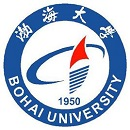INTRODUCTION
Bohai University (BU), which was established in February 1950, is a comprehensive university administered by Liaoning Province government. BU is located in Jinzhou City, Liaoning Province, China. Jinzhou is a seaside city with long history and cultural tradition.
BU covers a total land area of 2,000 Chinese mu (approximately equaling 1,333,333 square meters), and its floor area totals over 600,000 square meters. BU has established 17 sub-level colleges administering 46 programs for bachelor's degree and programs for associate degree. BU owns 16 programs for Level-1 master's degree, 71 programs for Level-2 master's degree, and 6 programs for professional master's degree, and such programs range from philosophy to economics, laws, education, humanities, history, science, engineering, management and arts. There are now more than 21,000 full-time postgraduates and full-time college students.
At present, there are 1,300 professional teachers, among whom are 200 professors and nearly 500 doctor's degree holders. Among the professional teachers, there are nearly 100 persons who have been awarded province-level or state-level titles, including members of Chinese Academy of Engineering, winners of National Science Fund for Young Scientists, National Hundred-level, Thousand-level and Ten-thousand-level Talents, National Excellent Teachers, Outstanding Talents for Ministry of Education's Support Plans, Liaoning Province's Diligently-working Scholars, Liaoning Province's Outstanding Experts, Special Professors of Liaoning Province, Outstanding Talents for Liaoning Province's Support Plan, Liaoning Province's Project of Hundred-level, Thousand-level and 10-thousand Level Talents, Province-level Outstanding Talents in Science and Technology, Province-level Famous Teachers, Province-level Professional Academic Leaders, Province-level Outstanding Teachers, etc.
FEATURES
BU has got 3 unique projects from Liaoning Province Key Disciplines, 7 supported projects from Liaoning Province Key Disciplines, 1 Engineering Co-center between the State and Local Areas, 1 science and technology platform ranked as Liaoning Province Higher Institutes' Key Platform for Science and Technology, 1 coordinative innovation center ranked as Liaoning Province 2011 Coordinative Innovation Center, 4 labs ranked as Liaoning Province Key Labs, 3 labs ranked as Liaoning Province Higher Institutes' Key Labs, 3 centers ranked as Liaoning Province Engineering Technology Research Centers, 3 centers ranked as Liaoning Province Engineering Research Centers, 1 research base ranked as Liaoning Province Higher School's Research Base for Humanities and Social Science, 4 research bases ranked as Liaoning Province Key Research Bases for Educational Plan, 1 center ranked as Liaoning Province Science Park, 1 center ranked as Liaoning Province Service Center for Medium- and Small-sized Enterprises, 1 platform ranked as Liaoning Province Service Platform for Medium- and Small-sized Enterprises, 1 base ranked as Liaoning Province Base for Science Popularity, and 4 other province-level research platforms. At Bohai University, there are now 11 innovative teams of higher schools at Liaoning Province level, and 1 test center, Public Test Center for Jinzhou Silicon Materials in National Torch Project and for Industrial Base of Solar Cell. There are 18 unique leading programs and 57 quality courses, all of which are either at the state level or at the province level. BU has surpassed many other higher schools for the sake of its 23 quality textbooks, 105 teaching reform projects, and 60 teaching awards, all of which are either at the state level or at the province level. In teaching activities. BU has established 7 province-level teaching teams, and 8 leading experiment teaching demonstrative centers at the provincial level. According to the Evaluation Report for China's Universities and Their Disciplines in 2014, Bohai University was listed No. 146 among national universities and No. 10 among universities in Liaoning Province, and it was in the 20% list of national universities for its Food Science and Engineering, Education Science, Literature, Management Science, Chemistry, etc. According to the ESI data released by Thomson Reuters on Mar. 18, 2016, Bohai University has been listed among the 1% of the higher schools in the world for its engineering discipline. With 90% of the employment rate in recent years and provincial base of practical education, BU is entitled as 2014 Ministry of China's Typical Higher School for Graduate Employment, which promotes BU to the list of the top 50 higher schools in China for the employment rate of its graduates. In 2014, Bohai University was recognized by International Maritime Organization as a qualified school in nautical studies, and BU is listed as the 5th national organization in nautical studies. The Journal of Bohai University (Natural Science Edition) has been rated as China's Core Journal in Science and Technology, and the Journal of Bohai University (Philosophy and Social Science Edition) has been ranked as National Quality Journal of High Schools and the first-level journal of Liaoning Province. Two academic papers by teachers of Bohai University entered into China's Top 100 Academic Papers of Highest International Influence in 2015, making Bohai University ranked No. 7 among national universities and No. 1 among universities in Liaoning Province.
Since China's Twelfth Five-year Plan, BU teachers have successfully applied or completed 2224 projects of various levels, including the national Project 863, National Fund Project for Natural Science, National Fund Project for Social Science, and other key projects at the levels of Ministry of Science and Technology, the Ministry of Education or Liaoning Province, and have got 1,061 awards for academic researches of various kinds. They have been authorized 240 invention patent rights. They published 452 professional books and 10,388 papers, 2,001 of which have been indexed by the three key search systems—SCI, EI and CPCI. Beginning from 2011 until now, they have successfully applied for 32 projects for the National Fund Project for Social Science, 125 projects for the National Fund Project for Natural Science, 8 projects for the Ministry of Science and Technology, and 345 projects for the Ministry of Education's Project for Humanities & Social Science and the Ministry of Education's Key Projects for Science and Technology. Particularly in 2014, they have successfully applied for 11 projects for the National Fund Project for Social Science, and 31 projects for the National Fund Project for Natural Science, which promotes Bohai University to the 3rd position among higher schools in Liaoning Province; up until now, 8 projects for the National Fund Project for Social Science, and 37 projects for the National Fund Project for Natural Science, which promotes it the 4th position among higher schools in Liaoning Province. Bohai University is listed to No. 68 among national top 100 higher schools and No. 1 among higher schools in Liaoning Province for nation-wide ESI-TOP papers in 2012. It is listed to No. 60 among national higher schools and No. 2 among higher schools in Liaoning Province for the 2014 Most Cited Chinese Researchers. With 2 papers entering into China's 100 Most Influential International Academic Papers in 2014, Bohai University is listed to No. 7 among national higher schools and No. 1 among higher schools in Liaoning Province.
BU has established friendly cooperation relationship with 23 higher schools and educational institutes from other countries, including the USA, Germany, UK, Japan, South Korea, Australia, Russia, the Republic of Kazakhstan, Pakistan, Burundi, etc. and cooperates with 16 foreign enterprises. In particular, BU and University of Burundi has co-built the Confucius Institute, where the first cohort of Chinese language and culture students has graduated. At present, as a training school for the international students who have obtained the Chinese Government Scholarship, BU recruits international students from 40 countries, exchanges scholars with those countries, and selects and sends top students and young- and middle-aged teachers to further their studies or to pursue their academic degrees to those countries. In 2014, Bohai University has been accredited for a school qualified for maritime education, which promotes BU to the fifth position among maritime school in China.
By enhancing its own software and hardware environments, BU has made a great leap forward in its multiple performances. According to the investigations made by some national evaluation institutes, such as Wushulian, Wangdawang, Alumni Network, and Research Center for China's Science Evaluation, BU is listed near to the 200th place among 800 state-owned higher schools in China, and is ranked to the 8th best university in Liaoning Province. In 2012 Chinese university academic paper ranking list—ESI-TOP, it is ranked as the 68th among China's 100 best universities, and as the first one among higher schools in Liaoning Province.
BU has its own complete infrastructure to meet the needs of teaching and research, and the library houses 2,720,000 volumes of books. The campus is beautiful with grass and trees. In the 2nd China's Most Beautiful Campuses Competition held by Sohu.com in 2010, it was 8th most beautiful campus among China's higher schools. It is also the Leading National Green Organization, Liaoning Province Greening Organization, Liaoning Province Campus for Safety and Model Base for Ecological Culture Education in Liaoning Province.
BU adheres to its own way of software- and hardware-environment development, to its pursuit of quality-oriented education as its way of schooling, and to its policies of One Center, Two Strongholds to Be Conquered, Three Great Strategies, Three Tasks, Project 1-3-3, the Elite Students Plan, and the principle of overall quality management. By pursuing the above, BU is determined to make itself into a national first-rate university with its own characteristics by 2030, the 80th anniversary of Bohai University, which is well-known in China for its comprehensive development, for its training of practical talents, and for its first-level disciplines made up of traditional ones, new engineering ones and many other well-coordinated ones.




